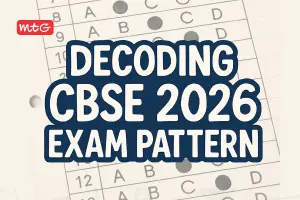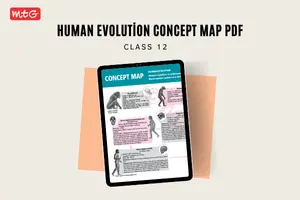
NCERT has significantly updated the Physics textbooks in accordance with the National Education Policy (NEP) in 2020 to provide students with a more contemporary and engaging learning experience. “The reduction in the material will help in increased curriculum flexibility and the renewed emphasis on productivity rather than rote learning,” claims NEP 2020. The new curriculum has been designed to ease the workload and pressure on the students and promote more practical and experiential learning. Source – NEP Final
The NCERT Physics textbooks will be available in at least 22 languages, mentioned in the eighth schedule of the Constitution, including Hindi, English, Bengali, Assamese, Gujarati, Kannada, Sanskrit, Punjabi, Sindhi, Manipuri, Urdu, Malayalam, Odiya, and Kashmiri, among others.
Check out – Deleted Syllabus of Class 11 (2023-24) From NCERT Textbooks
Topics Removed from the Revised Textbooks
Following the implementation of the NEP 2020 policy, around 30% of the content of the NCERT Physics textbook is likely to be rationalised for 2024-2025. MTG consists of a team of experienced authors and subject matter experts who are well-versed with the latest developments in their respective fields with our reference books for class 11. We strive to provide resources that are up-to-date and provide students with the necessary knowledge to succeed in their academic pursuits. We are quick to adapt in regards to the latest revision of the NCERT Biology textbook and will soon include changes consistent with the NCERT. The table below lists the content that has been dropped from NCERT Physics for class 12 for the academic year 2024–2025. in their
| Class-11 NCERT Chapter | Dropped Physics Topics/Chapters |
|---|---|
| Chapter 1: Physical World | 1.1 What is Physics? 1.2 Scope and Excitement of Physics; 1.3 Physics, Technology and Society; 1.4 Fundamental Forces in Nature; 1.5 Nature of Physical Laws |
| Chapter 2: Unit and Measurements | 2.3 Measurement of Length; 2.4 Measurement of Mass; 2.5 Measurement of Time 2.6 Accuracy, Precision of Instruments and Errors in Measurement; Exercises 2.13, 2.14, 2.19–2.22, 2.24–2.33 |
| Chapter 3: Motion in a Straight Line | 3.2 Position Length and Displacement; 3.3 Average Velocity and Average Speed; 3.7 Relative Velocity Exercise 3.5, 3.7–3.9 and 3.23–3.28; Appendix 3.1 |
| Chapter 4: Motion in a Plane | 4.9 Relative Velocity in Two Dimensions; Exercises 4.12–4.14; 4.26–4.32 |
| Chapter 5: Laws of Motion | Exercises 5.24 – 5.40 |
| Chapter 6: Work, Energy and Power | 6.10 Various Forms of Energy: The Law of Conservation of Energy; Exercise 6.24–6.29 |
| Chapter 7: System of Particles and Rotational Motion | 7.10 Theorems of Perpendicular and Parallel Axes; 7.14 Rolling Motion; Exercises 7.10, 7.18–7.19, 7.21–7.33 |
| Chapter 8: Gravitation | 8.11 Geostationary and Polar Satellites 8.12 Weightlessness; Exercise 8.3–8.5, 8.22–8.25 Appendix 8.1 |
| Chapter 9: Mechanical Properties of Solids | 9.2 Elastic Behaviour of Solids; 9.6.2 Determination of Young’s Modulus of the Material of a Wire; Exercises 9.17 – 9.21 |
| Chapter 10: Mechanical Properties of Fluids | 10.4.2 Venturi-meter; 10.4.3 Blood Flow and Heart Attack; 10.6.6 Detergents and Surface Tension; Exercises 10.21–10.31; Appendix 10.1 |
| Chapter 11: Thermal Properties of Matter | 11.9.5 Greenhouse Effect; Exercises 11.21 – 11.22 |
| Chapter 12: Thermodynamics | 12.9 Heat Engines; 12.10 Refrigerators and Heat Pumps; Exercises 12.7 and 12.10 |
| Chapter 13: Kinetic Theory | 13.6.5 Specific Heat Capacity of Water; Exercises 13.11 – 13.14 |
| Chapter 14: Oscillations | 14.9 Damped Simple Harmonic Motion; 14.10 Forced Oscillations and Resonance; Exercises 14.16 (p. 365), 14.20–14.25 |
| Chapter 15: Waves | 15.8 Doppler Effect; Exercises 15.20 – 15.27 |
What is the basis of Content Rationalisation?
According to Union Minister of State for Education Annapurna Devi, “Overlapping with similar content included in other subject areas in the same class; similar content included in the lower or higher class in the same subject; difficulty level; content, which is easily accessible to children and does not require much intervention from the teachers and can be learned through self-learning or peer learning; content, which is not relevant in the present context or outdated and taking care of the learning outcomes already developed across the classes, are among the criteria adopted for rationalization of the content load.” Source – NCERT textbooks rationalised to compensate for Covid-19 time loss: Education ministry
Also Check – 12 Things You Need to Know About the Newly Revised Objective NCERT at your Fingertips
MTG is reputed for staying up-to-date with the latest trends and policies in education. We always make sure to come up with learning material that will help students to ace all the challenges they might face in their educations. You can trust us for 100% error-free and authentic content to achieve your dreams.
Follow us for all the educational updates!
Also Check – Deleted Syllabus of Class 11 (2023-24) From NCERT Textbooks





























